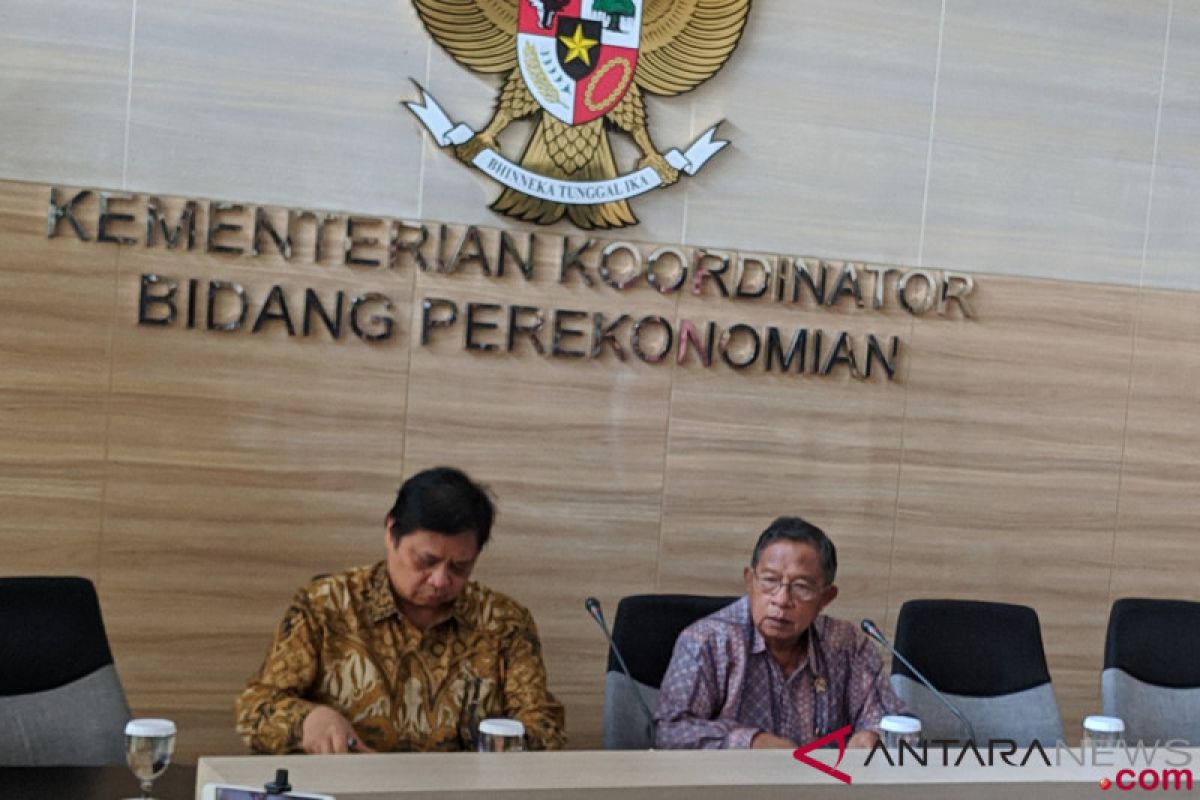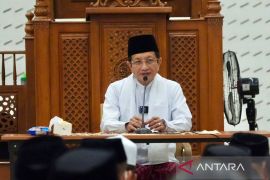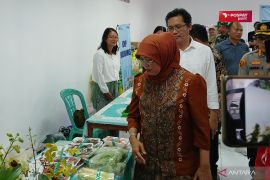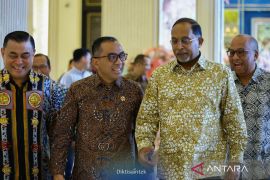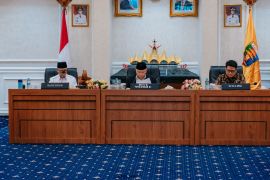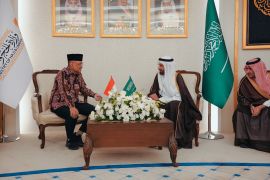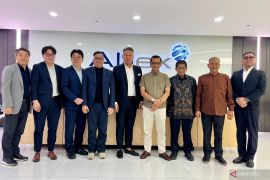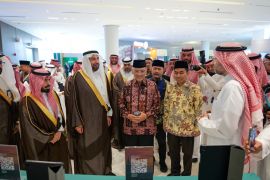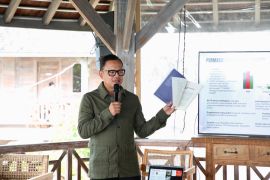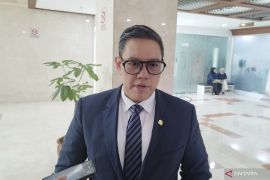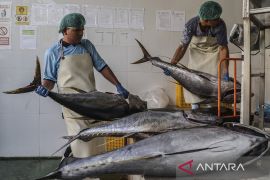The government has sought to attract more investment as one of the main drivers of the country`s economic growth amid weak performance of the country in export.
The government is especially concerned with the deficit in the country`s foreign trade contributing to widening current account deficit, which has been blamed for the rupiah depreciation against the U.S. dollar lately.
More important still expected from the acceleration of investment is the opening of new jobs, Industry Minister Airlangga Hartarto has said.
The Industry Ministry recorded significant growth in the investment in the manufacturing sector in the past four years -- from Rp195.74 trillion in 2014 to Rp274.09 trillion in 2017.
In the first half of 2018, investment in the manufacturing industry already reached Rp121.56 trillion, opening new jobs for 17.92 million workers.
Other no less important benefit from an increase in foreign direct investment (FDI) in the country is transfer of experience, knowledge and technology.
In a bid to boost investment, the government has issued a series of policy packages such as offering tax allowance, tax holiday, import duty exemption and adoption of Online Single Submission (OSS).
The various strategic policies were to create more favorable and convenient business climate for investment especially FDI.
Most recently the government opened a number of business areas previously close to new investment including FDI in what was called relaxation of DNI (list of negative investment) which is a list of business areas closed to new investment or foreign investment.
The policy has triggered controversy with observers accusing the government of offering wide facility for foreign investment at the expense of domestic industry especially micro, small and medium enterprises (UMKM).
The government defended its policy dismissing the accusation of being driven by lack of readiness to understand the government policy and socialization.
The policy package opens the wider the possibility of partnership between foreign investment and UMKM to promote their economic scale, it said.
The government said DNI has to reflect balance between the goals of economic development and national interest, therefore, DNI has to be dynamic or has to continue to adapt to the changing condition of the national economy.
The relaxation of DNI was a revision of the Presidential Regulation No. 44 of 2016. It is part of the 16th policy package, designed to boost investment both domestic investment (PMDN) and foreign investment (PMA).
Among the business areas excluded from DNI are cloth printing and knitting industries, crumb rubber, copra, ketchup, milk processing, sweet condensed milk, timber-based goods manufacturing, essential oil, and nail, nut and bolt industries.
The government gave a number of reasons for the relaxation, citing, in the period of 2012-2016, there was only one additional industrial unit in crumb rubber processing sector - from 201 to 202 companies.
Crumb rubber industry was closed to PMA and PMDN and appropriated only for UMKM but under the new policy the sector is no longer included in the DNI. It is partly open to PMA and PMDN as no significant investment by UMKM in the sector over the past three years.
Industry Minister Airlangga said under the policy of DNI relaxation, there is no requirement for foreign investors to operate in partnership with local investors.
Boosting Growth of New Industrial Business Units
Airlangga said increase in investment would increase the number of industrial business units. In the period of 2014-2017, there were significant increase in the number of industrial business units -- from 25,094 units to 30,992 units or an increase of 5,898 business units.
In the small industrial sector, there was an addition of 970,000 units -- from 3.52 million units in 2014 to 4.49 million units in 2017.
Therefore, through the relaxation of DNI, new investment is needed to produce new manufactured goods with higher added value, the Minister said.
Cloth printing and fabric knitting industries are excluded from DNI as production of printed and knitted fabric has continued to fall short of demand with demand averaging 236,000 tons a year as against domestic supply of only 169,000 tons that big imports continue to be needed and increases from year to year.
If the country is to cut its imports of printed and knitted fabrics, investment has to be encouraged to build new factories in the two sectors. Investment in fabric printing industry is quite large at around Rp100 billion - an investment not in the category of IMKM. The minimum limit for a foreign investment is only Rp10 billion.
In a bid to increase investment in the sector, the government even offers incentive in the form of tax allowance for investment in cloth printing and knitting industries. Tax allowance facility is offered to medium large investors.
In revising DNI, the government still maintains that a number of business areas closed to PMA and PMDN to protect UMKM.
Business areas reserved only for UMKM and cooperatives include fermented soybean cake, soybean curd, and food from soybeans, brown sugar, hand printed batik, embroidery, and rubber curing industries.
Airlangga said there were 87 business areas excluded from DNI including ones under the previous policy package in 2016.
The government hopes the policy would boost investment especially with other fiscal instruments and policy such as tax allowance and tax holiday
Business world
The government invited the Indonesian Chamber of Commerce (Kadin) and the Association of Young Indonesian Business People (HIPMI) after Kadin General Chairman Rosan Roeslani protested that the business people were not involved in the discussion before issuing the DNI relaxation policy.
Rosan representing Kadin and a chairman of HIPMI Ajib Hamdani met with Coordinating Minister for Economy Darmin Nasution and Industry Minister Airlangga.
Rosan said KADIN need to know details of the policy as it will have big impact of the business sector. He said it was agreed that the government is socialize the policy .
Darmin said the protest and allegation came on wrong perception over a number of business areas which are appropriated for UMKM and cooperatives under the DNI of 2016.
The business areas include cloth printing industry, knitting industry particularly embroidery and internet service outlets.
"It is impossible that a foreign investment would operate in any of those business areas as a foreign investor is required to start business with a capital of at least Rp10 billion. Those businesses are not Rp10-billion class venture.," Darmin said.
Secretary of the Coordinating Ministry for Economy Susiwijono said those business areas are no longer included in the list of business areas closed to foreign investment, but it does not mean that they are no longer appropriated for UMKM and cooperatives.
Particularly business in internet service outlet is excluded from DNI that it no longer requires license, Susiwijono cited.
"Now the business is excluded from DNI to simplify the procedure. It no longer needs business license giving wider access to UMKM to the business," Susiwijono said.
Susiwijono said the products of the two business areas are important to support import substitution program and to reduce imports. So far demand for the products of the two industries has been higher than domestic production that imports are high.
Meanwhile, Head of the Capital Investment Coordinating Board (BKPM) Thomas Lembong said the 16th economic policy package is expected to revive investment interest.
Thomas said direct investment declined in the third quarter of 2018 on global economic crisis including trade war between the United States and China.
Under the condition, most investors chose to wait and see before embarking on big investment venture, he said.
The government, therefore, has to make a breakthrough to draw investors to the country.
Investment in the third quarter of this year was valued at Rp173.8 trillion or 1.6 percent lower than Rp176.6 trillion in the same period last year. However, cumulatively in the first three quarters of this year , direct investment rose 4.3 percent to Rp535.4 trillion from Rp513.2 trillion in the same period last year.
Editing by Fardah Assegaf
Reporter: Sella Panduarsa Gareta/A.Sarag
Editor: Heru Purwanto
Copyright © ANTARA 2018
